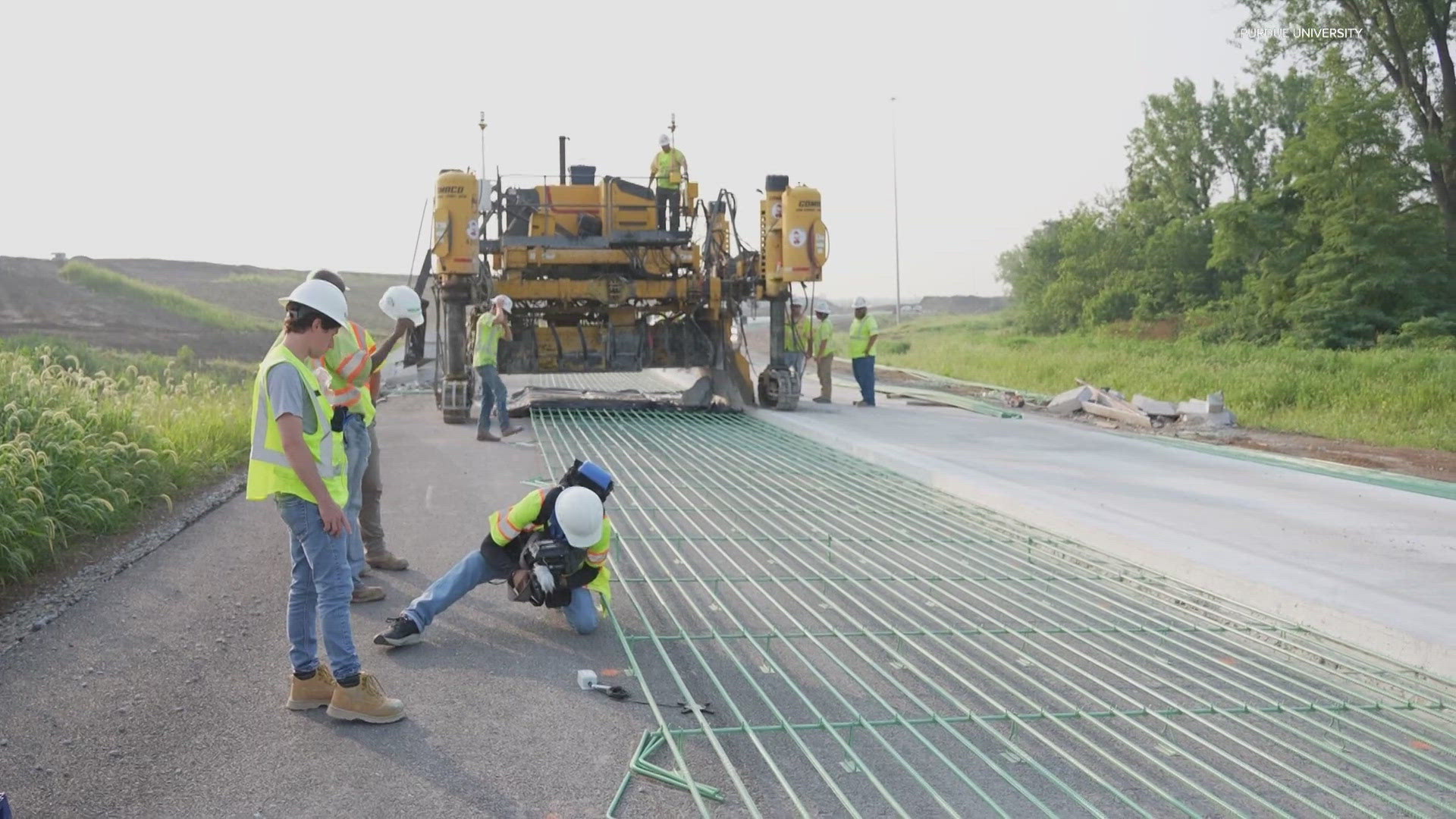WEST LAFAYETTE, Ind. — Special sensors installed into the concrete on a few Indiana highways last summer are now gaining national attention.
The technology, invented at Purdue University, is known as "talking concrete" and it could change road construction all across the country.
Twelve states are piloting the sensors in their roads with more to come this fall.
Plus, a group that represents transportation departments in all 50 states just approved the technology as a national standard.
That's a big deal.
"That paves the way for the technology to be adopted nationwide," said Luna Lu, who invented the technology.
She said the sensors can save money, reduce potholes and speed up construction projects.
Here's how they work: Crews embed sensors under the rebar, just like they did on Interstate 69 on the south side of Indianapolis last July. Then, engineers get real time data through an app: How strong is the highway? When should it be fixed before it goes bad?
"All of a sudden, a bridge can communicate with the engineers about their strength, if they need maintenance, you know, all those type of information. For instance, I know exactly what's happening in Austin, Texas right now. I know exactly what's happening in Indiana, in Indianapolis," Lu said.
It's all wireless, and it charges fast, too.
"So very fast, maybe a couple hours it can be fully charged and then it can be left in the field for over a month," said Rui He, a Purdue grad student.
It's a big change from the current way of testing concrete — which was invented a century ago — taking cylinder-sized samples and waiting more than a month for results.
Also, this new tech has gone from prototype to commercial product. Lu started selling the sensors to contractors last month.
"I think I'm extremely proud," she said.
An invention from Purdue that's poised to change road construction nationwide.

